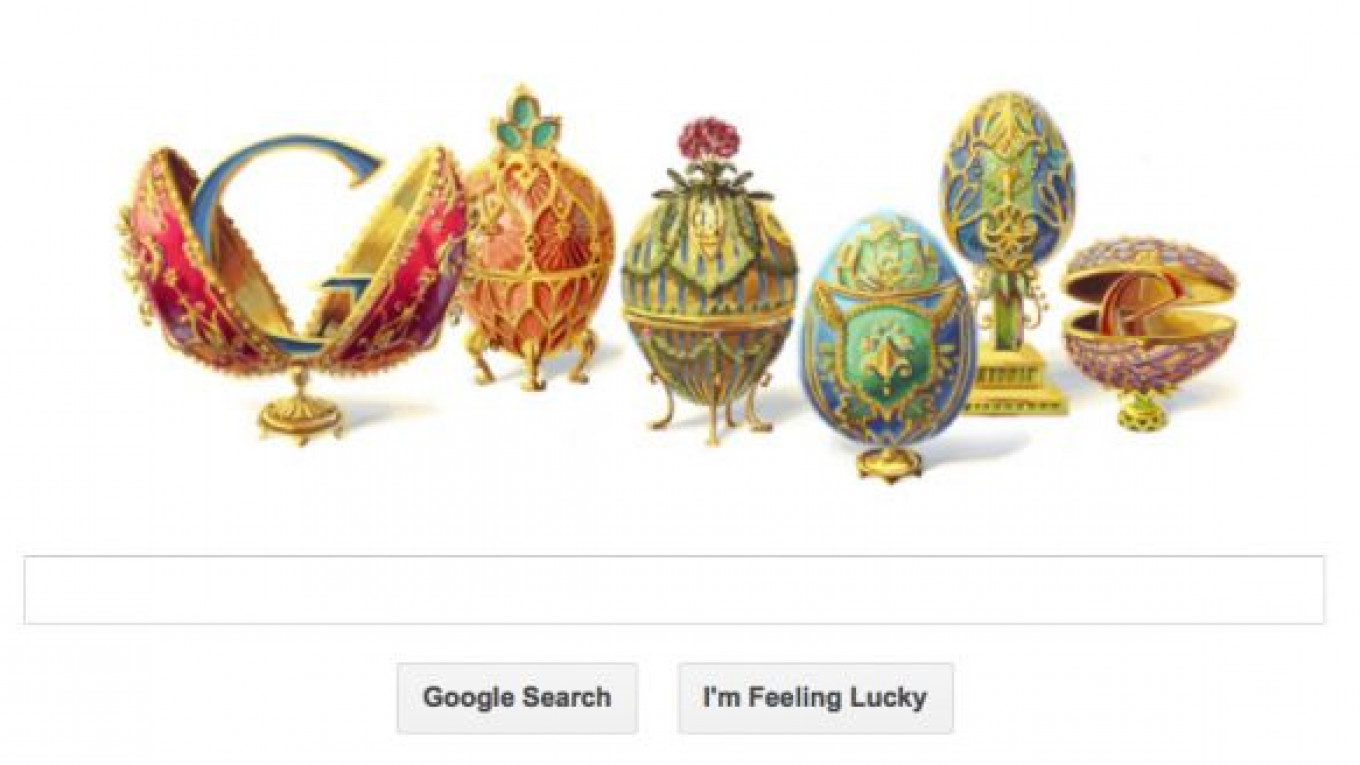The creator of the delicate and intricately jeweled Faberge eggs that have become a symbol of Russian grandeur was honored by search giant Google on its homepage Wednesday, the 166th anniversary of the famed jeweler's birthday.
The doodle depicts six of the famously gilded eggs in place of each letter of the word "Google," with the first and last eggs opened on small hinges to reveal the letters "G" and "e."
Peter Carl Faberge, born to German jeweler Gustave Faberge in St. Petersburg on May 30, 1846, created finely crafted jeweled Easter eggs and other exquisite gifts for generations of Russia's imperial family right up until the 1917 Revolution.
By the time of the Revolution, Faberge had produced more than 155,000 items spanning jewelry, objects, tableware and accessories ranging from cigarette cases to crochet hooks.
The jeweler's business was nationalized after the October Revolution, and he fled the country. The 74-year-old Faberge died in Switzerland shortly thereafter.
Only a small number of eggs created by Faberge himself remain in existence, and each are considered highly valuable and are sought after by collectors. Billionaire Viktor Vekselberg is a well-known collector in possession of the world's largest collection, and he has repatriated many of the eggs to Russia.
A handful of egg objects were made as private commissions, including the Rothschild egg, which was sold at auction by Christie's for US $19.5 million in 2007.
The State Hermitage Museum will pay tribute to Carl Faberge, one of the most famous jewelers of all time in 2014 by opening a Carl Faberge Museum to coincide with the 250th anniversary of the museum.
A Message from The Moscow Times:
Dear readers,
We are facing unprecedented challenges. Russia's Prosecutor General's Office has designated The Moscow Times as an "undesirable" organization, criminalizing our work and putting our staff at risk of prosecution. This follows our earlier unjust labeling as a "foreign agent."
These actions are direct attempts to silence independent journalism in Russia. The authorities claim our work "discredits the decisions of the Russian leadership." We see things differently: we strive to provide accurate, unbiased reporting on Russia.
We, the journalists of The Moscow Times, refuse to be silenced. But to continue our work, we need your help.
Your support, no matter how small, makes a world of difference. If you can, please support us monthly starting from just $2. It's quick to set up, and every contribution makes a significant impact.
By supporting The Moscow Times, you're defending open, independent journalism in the face of repression. Thank you for standing with us.
Remind me later.






